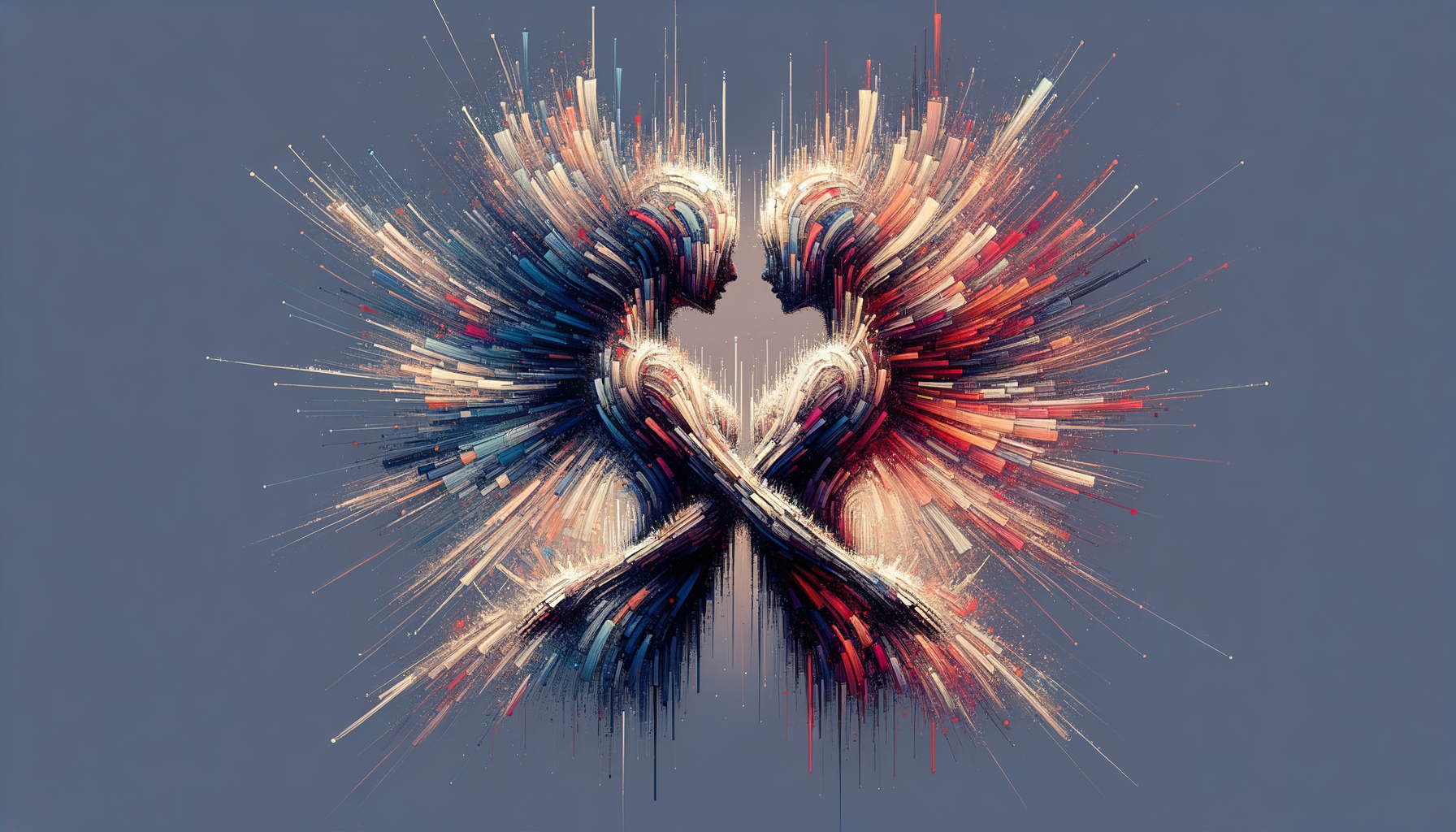The First Love You Never Forget
Writing, for me, began as a rebellion. I started when I was eight, scribbling secret poems in the margins of my school notebooks in Alexandria, dodging my mother’s disapproving glances. “Focus on math,” she’d say, though in my defense, writing rhymes about the neighbor’s cat felt infinitely more urgent than long division. Those words may not have changed the course of literary history, but they awakened something in me: writing was a way to make sense of the world—or at least add some flair to its monotony.
Years (and continents) later, my relationship with writing feels a lot like dating. Does anyone else remember the obsessive infatuation of a first crush? That’s how I felt the first time a teacher praised an essay I’d written about Egyptian street markets. I rewrote it ten times until the metaphors felt just right. Writing made me feel seen. It made me believe in magic.
But just like any long-term relationship, my affair with storytelling hasn’t always been easy or glamorous. Some days, it’s roses and symphonies; other days, it resembles that nauseating first date where both people pretend to love hiking. Why do I write, then? Because, much like a great love, it teaches me who I am. It brings me back to what matters. And just like love, it’s messy, exhilarating, and worth every late-night existential crisis.
Chapter One: Writing as a Bridge
Growing up between Alexandria and Paris meant juggling two lives at once. In one, I was Zahra: the Egyptian daughter expected to preserve traditions and never leave the house without smelling like jasmine. In the other, I was Sarah (a name I picked in my French classroom to blend in): the girl furiously texting friends about hot croissants and philosophizing in parks.
I was always translating—across languages, cultures, emotions. What’s the Arabic word for “awkward”? How do you explain to a Parisian why Ramadan isn’t a diet? Writing became the bridge between these two versions of myself.
In my teens, I started storytelling not just to share my feelings but to document them. The friendships, the heartbreaks, the quiet confusion of standing between East and West—it all poured onto the page. Writing was how I could look at my world and whisper, “I see you, and you’re beautiful.”
Whether you’re crossing cultural borders or just trying to figure out how to text your crush without scaring them off, writing works the same way—it’s the bridge to vulnerability. And if there’s one thing I’ve learned, it’s this: relationships thrive when you’re brave enough to put your messy truth into words.
Dialogues of the Heart: Writing as Therapy
You know that classic rom-com trope where the protagonist overthinks a text—typing and retyping, only to delete everything because the risk of sounding dumb outweighs the reward of connection? That’s me with pretty much every draft I write.
The blank page can be terrifying. But also, it’s endlessly patient. It never rolls its eyes when I’m on my third sentence rewrite. It doesn’t ghost me when all I can offer is incoherent rambling. And surprisingly often, writing lets me say the things I couldn’t say out loud.
Take breakups. I wrote my first post-heartbreak journal entry at 17: a melodramatic, five-page letter to a guy who barely knew I existed. Did he deserve my poetic musings? Probably not. Did I need them? Absolutely. Writing allowed me to wade through my feelings without judgment. It turned chaos into clarity, heartbreak into healing.
This isn’t just my experience, by the way. Studies have shown that expressive writing—capturing raw thoughts and emotions—can improve mental health, ease anxiety, and even boost decision-making. Whether it’s jotting down your dating deal-breakers or drafting a truly catastrophic love poem, the act of writing is like relationship therapy—you learn what you need and how to ask for it.
Dancing Between Languages
Here’s the thing about words: they can betray you. Ask anyone who’s ever accidentally called their crush by someone else’s name. But sometimes, they charge in like knights on horseback, saving the moment.
As a bilingual (okay, trilingual, but who’s counting?) writer, I’ve developed a lover’s quarrel with language. I adore Arabic’s poetry, the way a single word can carry the weight of centuries. And I envy French, with its precision and elegance, how “je t’aime” feels different—softer, somehow—than “I love you.” Writing lets me flirt with both worlds, stealing Arabic metaphors and French cadence to create stories that sound like me.
This cultural crossfading has also shaped how I approach relationships. It’s taught me that love—romantic or platonic—isn’t always about perfect understanding. Sometimes, it’s about learning each other’s dialect, stumbling through mistranslations, and laughing when the metaphor doesn’t quite stick.
If you’ve ever argued over how to pronounce “croissant” in front of someone you care about, you already know: vulnerability is the real language of love.
Why Keep Writing?
Let me confess something: even now, with years of experience and a stack of published stories, there are days when I think, “Why am I still doing this?” It’s a valid question. Writing isn’t always fun. Sometimes, it’s just staring at the blinking cursor of doom and wondering if the right words will ever arrive.
But here’s what pulls me back: life is too rich and weird not to document. Like that time I tried to explain my Egyptian grandmother’s dating advice to my French roommate (“Don’t smile too much; boys will think you’re unserious”), and we both ended up laughing until our stomachs hurt. Writing captures these moments, the way even messy relationships can glimmer like constellations when you zoom out a bit.
And it’s not just about preserving memories. Writing, at its best, is a gift you give yourself. It’s the space where you can drop the filter, ditch the performance, and say, “This is me in all my glorious contradictions.”
Falling Back in Love with Storytelling
Much like relationships, writing gives as much as it takes. It overwhelms you with its complexity, demands your honesty, and sometimes outright ignores your deadlines. But every now and then, when the words align just right, you experience the same euphoria as spotting that magical spark between you and someone new. You fall back in love.
If storytelling has taught me anything, it’s to lean into discomfort. Whether it’s figuring out why a character isn’t working or admitting I was wrong in an argument, writing forces me to get real about my imperfections. But it also reminds me that imperfection is where the magic happens—it’s where connection lives.
So, why do I write? Because every story is a practice in love. It demands commitment, creativity, and courage. Whether I’m writing about heartbreak or a joyous reunion, it reminds me of what it means to be human.
And honestly, the stories aren’t finished yet.
The Takeaway
If there’s a lesson in all of this, it’s to treat your passions like a great love—you’ll fight, you’ll falter, but you’ll also grow. Whether you write for yourself, a partner, or the Snapchat group chat, don’t be afraid to pour your heart into it. Writing, like love, rewards the bold.
Your story is yours to tell—and it’s never too late to start.




















